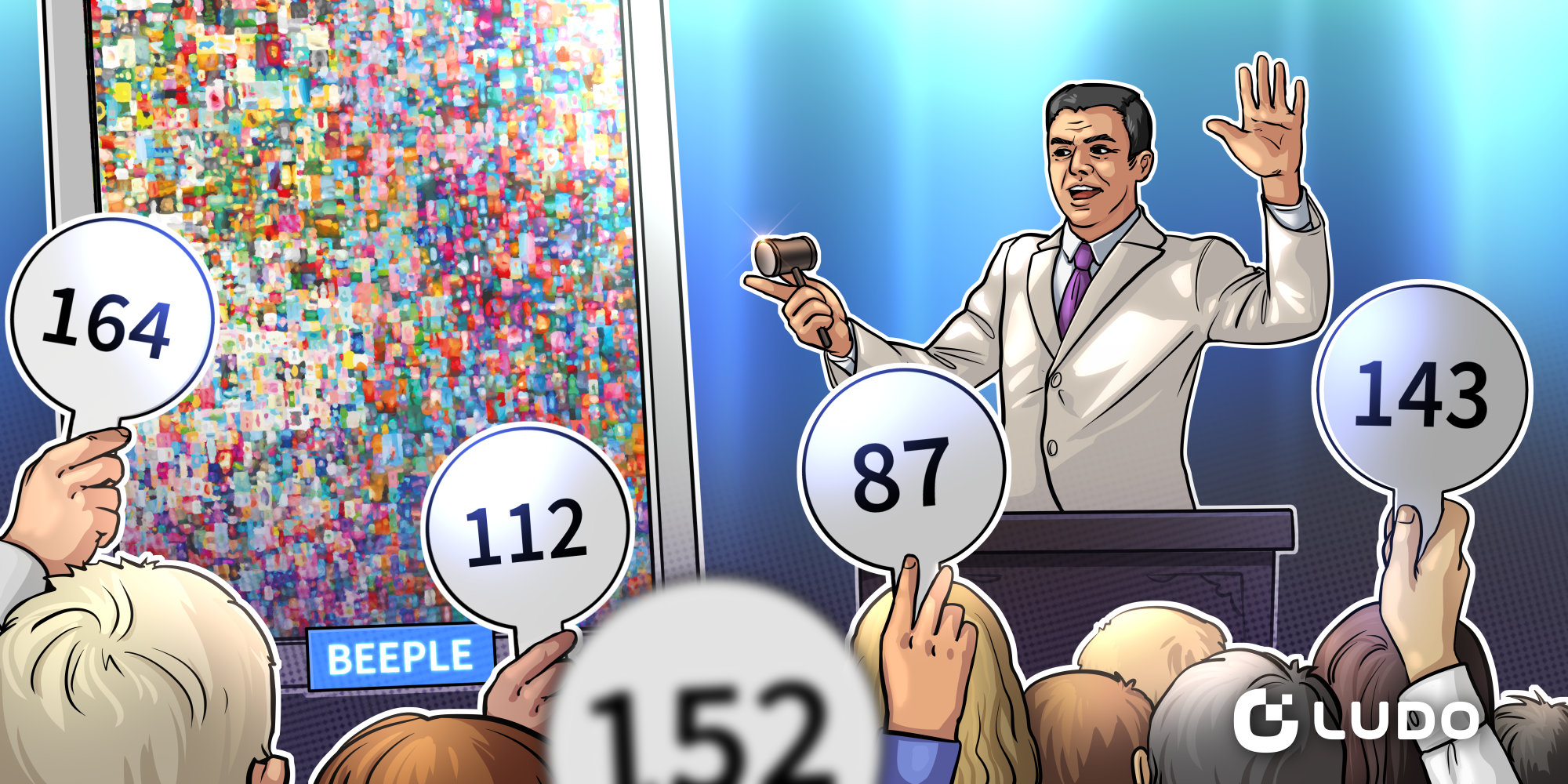How Much is Beeple’s $69 million NFT worth Today?
NFTs (non-fungible tokens) have gone through one of the sharpest growths in recent times. Google search trends show searches for NFTs eclipsed searches for crypto between January to February of 2022. Artists worldwide found a new source of income as the market for their art grew globally through NFTs and their marketplaces. The most expensive NFT owned by one person was sold on March 11th of 2021 almost a year before peak search trends. This NFT is Beeple’s “Everydays: The first 5000 days” and it prompts one question. If the owner wanted to sell their NFT one year later, with Ethereum being worth more and NFTs being much more popular – how much would it be worth?
Before answering that question, here’s a little backstory on the Beeple NFT. March 11th 2022 marked the one-year anniversary of Beeples NFT selling for 42,329.453 Ethereum, worth $69 million when sold. The current owner now possesses the most expensive NFT in history. If the owner wanted to sell their NFT for the same number of Ethereum as the purchase, then it would be worth $130 million.
Unfortunately, the NFT market is not quite as simple as that. The “non-fungible” part of NFT means that the asset is not linked to any real-life currency. This means that the NFT is only worth what someone is willing to pay for it, and that can change. For instance, a cryptocurrency token is fungible. If one hundred people had one hundred Ethereum then the value is the same as it’s linked to a real currency. NFTs do not follow this same value association. Whilst research has shown the NFT market being more predictable than the traditional art market – the value for individual art pieces are hard to pin down.
In the case of the Beeples owner, they now have an NFT with uncertain value. This value is derived from purchasers and bidders. This is not usually an issue because the owner does not have to sell or could wait until the right buyer comes along. However, NFT marketplaces are fragmented across Web 3.0 and DeFi (decentralized finance). Countless marketplaces exist across different blockchains other than Ethereum. If the Beeple 5000 owner wanted to sell, then they need to manually search across numerous marketplaces, communicate with varying communities and then list the NFT.
The experience is not smooth or user-friendly and is instead time-consuming and cumbersome. With the NFT market rapidly growing, and with the emergence of the Metaverse on the horizon, a hub of NFT-related information is vital. The real world does not have this problem as there are global auction houses, art museums and forums. Traditionally the art world is not segmented in the same way as DeFi. With fewer NFT pursuers it may take more time to sell an NFT for the desired price.
Currently, there is a company that aims to solve these problems called LUDO. LUDO aims to be the hub of all things Web 3.0, Play-to-earn and NFT. Their app provides users with an all-in-one space to browse for play-to-earn games, NFTs, Music, Concert tickets and more. The platform obtains and analyzes data from every blockchain and compiles one central place with every piece of information an investor may need. Investors can even create their very own NFTs using the LUDO platform. Once created, NFTs can be advertised and promoted. Users can even get quests that offer various platform rewards.
By using LUDO, the Beeple owner can access the platform and compare prices of NFTs across the entire Web 3.0 space, while the number of users that can purchase the Beeple NFT grows due to Ludo being a cross-chain app. Instead of users getting locked to specific marketplaces, they instead get to search across the entire DeFi ecosystem. The time consuming, hard to understand, and costly requirements of the NFT space are now accessible to consumers. Thus Ludo eliminates major issues within DeFi, offering the Beeple owner unparalleled potential buyers and users exponentially more NFTs to purchase. Thanks to Ludo, with more purchasers, NFT value is realized faster than ever before.
Disclaimer: This article is provided for informational purposes only. It is not offered or intended to be used as legal, tax, investment, financial, or other advice
Credit: Source link


 Bitcoin
Bitcoin  Ethereum
Ethereum  XRP
XRP  Tether
Tether  Solana
Solana  Dogecoin
Dogecoin  USDC
USDC  Cardano
Cardano  Lido Staked Ether
Lido Staked Ether  TRON
TRON  Avalanche
Avalanche  Sui
Sui  Wrapped stETH
Wrapped stETH  Toncoin
Toncoin  Stellar
Stellar  Wrapped Bitcoin
Wrapped Bitcoin  Shiba Inu
Shiba Inu  Chainlink
Chainlink  Hedera
Hedera  WETH
WETH  Polkadot
Polkadot  LEO Token
LEO Token  Bitcoin Cash
Bitcoin Cash  Uniswap
Uniswap  Litecoin
Litecoin  Pepe
Pepe  Hyperliquid
Hyperliquid  Wrapped eETH
Wrapped eETH  USDS
USDS  Ethena USDe
Ethena USDe  NEAR Protocol
NEAR Protocol  Aptos
Aptos  Internet Computer
Internet Computer  Aave
Aave  Mantle
Mantle  Monero
Monero  Ethereum Classic
Ethereum Classic  POL (ex-MATIC)
POL (ex-MATIC)  Cronos
Cronos  MANTRA
MANTRA  Dai
Dai  Render
Render  Bittensor
Bittensor  Artificial Superintelligence Alliance
Artificial Superintelligence Alliance  Tokenize Xchange
Tokenize Xchange  Filecoin
Filecoin  Arbitrum
Arbitrum
Comments are closed.